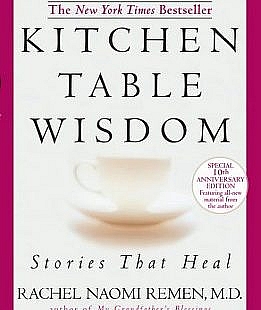 Gossip affects our health, relationships, and careers — for better and for worse. Why do men and women gossip? Partly because it’s good for us! Science and evolution shows that gossip can improve our health and survival rates.
Gossip affects our health, relationships, and careers — for better and for worse. Why do men and women gossip? Partly because it’s good for us! Science and evolution shows that gossip can improve our health and survival rates.
Here’s what the successful Barbara Walters says about gossip:
“Show me someone who never gossips, and I’ll show you someone who isn’t interested in people.”
And another zippy quip about gossip:
“If you haven’t got anything nice to say about anybody, come sit next to me.” ~ Alice Roosevelt Longworth.
Let’s face it: there’s something delicious about gossip. It feels good – and there are scientific reasons why we love to (need to) gossip. If you’re a woman who gossips, cut yourself a little slack. You’re human. If you want to learn to gossip less, click Overcoming Gossips by David Kamara. And here are a few reasons men and women gossip — plus how gossip can actually improve your health and life…
Why do Women (and Men!) Gossip?
Men and women are genetically programmed to gossip, and celebrity gossip is particularly appealing. Over 60 million American women buy celebrity magazines every week, and 90% of Hollywood gossip enthusiasts are women. Evolutionary psychologist Dr Charlotte De Backer says that we’re genetically programmed to gossip. Gossip lights up our brain cells in positive ways, literally making us feel good.
“It is widely known for humans that chocolate stimulates the release of endorphins, and therefore eating chocolate stimulates feelings of happiness,” says Dr De Backer. “Gossip is [also] an instant stimulator of endorphins.” Talking about other people releases those feel-good hormones, which is why gossip feels so damn good. Gossip also plays a role in developing human intelligence and furthering social lives.
Celebrity gossip makes men and women feel good. Our lives are stressful and busy – and maybe a little boring sometimes! Knowing that Angelina Jolie and Brad Pitt disagree about whether or not to spank Zahara gives us a rush. And, gossiping is healthier than binging on cookies and ice cream, drinking a bottle of wine, or shopping for another pair of shoes.
Celebrity gossip is safer than office gossip because we can spread rumors, give our opinions, and spend hours speculating about the lives of the rich and famous without ramification. Our words can’t come back to haunt us. (Note that men and women who overly indulge in office gossip can jeopardize their livelihoods and professional reputations. Gossips, be ware!).
The Relationship and Health Benefits of Gossiping
Gossip builds relationships. Telling secrets and talking intimately is not only fun, it builds stronger connections between women. Friendships often include spicy rumors and speculations about the people we know, which can be even more delicious than celebrity gossip because of the elements of danger and secrecy. But, a friendship can become toxic if it’s based on gossip.
Gossip makes friends of strangers. Researchers from the University of Oklahoma found that negative attitudes about others can promote friendships among strangers. Gossip or bonding against a “common enemy” establishes boundaries and builds self-esteem – and fans of sports teams are perfect examples of this! Gossip can be healthy because it pulls you together.
“We certainly do not deny that gossip behavior has it drawbacks,” say these researchers. “Still, if there is a positive side of gossip, we believe it is that shared, mild, negative attitudes toward others can create and/or amplify interpersonal intimacy.”
Gossip reveals the personalities of men and women. Listen to how your friends and coworkers gossip; you’ll learn more about them than the people they gossip about. Women who gossip reveal highly informative information about themselves. Remember: if someone gossips endlessly about others, she may also be gossiping about you.
Gossip helps women survive. In cavewomen times, gossiping about our friends, family and neighbors helped ensure our survival. If we kept up with the affairs of others, we’d have a better chance of living longer and healthier lives. It’s evolutionary fact: women who gossiped survived longer. And today, women who know what’s going on – who’s quitting a job, who’s selling a house, who’s leaving her husband – stand a better chance of finding new jobs, making better real estate deals, and befriending new bachelors.
What do you think — do you tend towards gossiping at work, and has it helped or hindered you?




